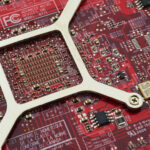Septic System Maintenance: Ensure Optimal Functioning
Ever pondered the consequences of ignoring your septic tank? For many families across the United States, upkeeping a sewage disposal unit is essential for safe sewage disposal and efficient sewage handling. Consistent emptying of the septic tank is crucial, not just a recommendation. Ignoring this can lead to costly fixes and pose serious health risks from germ infiltration. With a well-maintained system possibly enduring up to 30 years, it’s important to grasp the significance of regular maintenance. Working with professional services like Grease Trap Pumping Service guarantees your system functions optimally, safeguards the environment, and protects your property. Discover why commercial grease trap pumping is essential for a healthy living space.
Grasping the Components of Your Sewage Unit
Understanding the parts of a sewage disposal unit is crucial to proficient wastewater management. A well-functioning septic system treats household waste efficiently, safeguarding nearby water bodies. Each component is crucial for the waste disposal mechanism.
Components of a Septic System
A typical septic system comprises home pipes, a waste container, and a filtration field. Sewage from your residence flows into the waste container, where solids settle as muck at the bottom and oils create a film on the surface. It’s essential to have consistent checks to guarantee everything works as it ought to. If upkeep is ignored, debris might leak into the drain field, leading to breakdowns.
How Wastewater is Processed
The waste disposal mechanism in a septic system integrates physical and natural techniques. First, sewage remains in the waste container for about 24 hours. During this time, solids settle, and anaerobic bacteria begin decomposing the muck. Then, the wastewater moves to the soil treatment area for additional purification. When properly maintained, septic tanks manage sewage effectively, preventing spills and safeguarding nearby water bodies from harmful pathogens and chemicals.
The Necessity of Regular Septic Tank Maintenance
Regular septic tank pumping is essential for the durability and efficiency of your unit. It’s essential to know when to schedule this critical maintenance to avoid costly fixes and guarantee proper sewage disposal. Generally, most homes should empty their septic tanks every three to five years. However, this interval can vary based on multiple considerations.
When to Schedule Pumping
Indicators pointing to you require to empty your unit include:
- Slow drainage in sinks and toilets.
- Foul smells around the septic tank or drain field.
- Sewage backups in drains or lavatories.
Consistent checks can also provide insights into the system’s health. They aid in determine when emptying is required. Partnering with an expert company for routine assessments ensures you comply with regional standards on sewage unit upkeep.
Factors Affecting Pumping Frequency
Several considerations influence how often you should empty your unit:
- Number of Residents: Larger homes generate more wastewater, leading to quicker debris accumulation.
- Water Usage: Higher usage means quicker buildup, requiring more frequent pumping.
- Tank Capacity: Smaller tanks may require pumping more often than larger ones.
- Type of Waste: Flushing non-biodegradable items impacts waste management efficiency.
- Environmental Conditions: Heavy rainfall can flood the filtration area, affecting its effectiveness and potentially raising maintenance requirements.
Implementing a consistent emptying routine that matches your particular requirements not only protects your septic system. It also guarantees efficient filtration area maintenance.
Indicators of a Malfunctioning Septic Unit
Homeowners must stay alert for indicators of a failing septic system. Identifying these problems early can prevent expensive fixes and ensure a healthy environment. Here are key signs that indicate your septic system needs prompt maintenance.
Indicators of a Failing System
Several visible and sound-based signals may indicate unit issues. These include:
- Reduced flow throughout the home
- Noises coming from plumbing fixtures
- Foul odors around the unit or filtration area
- Pooling water or excessively green plants on the filtration area
Ignoring these indicators can cause untreated waste backflowing into your residence or infiltrating the groundwater. This increases the requirement for waste management and septic system maintenance.
Dangers of a Malfunctioning Septic System
A malfunctioning septic system creates major dangers. Untreated sewage threatens local water purity, potentially contaminating drinking water and causing community issues. Bacterial infections and viruses can spread in raw sewage, requiring immediate sanitation services to fix unit breakdowns.
Adherence to eco-friendly rules is essential to avoid dangerous water growths and other ecological hazards from contaminating nearby water sources.
| Signs of a Failing System | Possible Outcomes |
|---|---|
| Reduced Flow | Backflow of sewage into the home |
| Noises in Pipes | Shows air pockets |
| Unpleasant Smells | Raw sewage exposure |
| Pooling Water | Local water pollution |
Optimal Strategies for Sewage Unit Upkeep
Maintaining a sewage unit requires a blend of methods. This involves efficient water use and being careful about what goes into the unit. These best practices are crucial for guaranteeing your system works efficiently and meets sanitation standards. They also help following environmental compliance.
Methods for Efficient Water Use
Water conservation techniques can significantly boost your sewage unit’s efficiency and durability. Here are some effective methods:
- Fix any leaks in taps and lavatories immediately to prevent excess water usage.
- Install low-flow fixtures in baths, taps, and toilets to minimize water waste.
- Space out water usage throughout the day to prevent overloading the system with a high amount of liquid at one time.
- Educate family members about conservation techniques, prompting them to be aware of their usage.
These methods not only lower usage but also support effective sewage disposal. This extends the time between necessary pumpings.
Guidelines for Proper Sewage Unit Maintenance
Effective unit upkeep involves understanding what to practice and what to prevent:
- Do schedule consistent emptying depending on the unit capacity and household needs.
- Do practice efficient water use to maintain system efficiency.
- Be sure to safeguard the unit by employing organic items.
- Regularly check unit parts regularly to identify possible problems early.
- Don’t dispose of non-organic items, grease, or harmful chemicals.
- Don’t overload the system with excessive water at one time.
- Never neglect indicators of issues, as this can lead to costly repairs and impact eco-friendly adherence.
By following these rules, property owners can effectively upkeep their septic systems. This ensures environmental compliance and supports durability for both the system and the eco-system.
Choosing Expert Septic Maintenance Solutions
Choosing a reputable professional service for sewage unit maintenance, such as Grease Trap Pumping Service, is crucial for proper waste management and unit upkeep. Certified and skilled technicians understand the complexities of septic systems. They guarantee waste is managed and removed properly, adhering to regulatory guidelines. This approach not only lowers risks but also enhances your community’s health.
Property owners must plan regular consultations with experts for inspections and emptying. This proactive strategy assesses your unit’s health, extends its life, and prevents costly repairs due to lack of maintenance. By opting for expert services, you enhance your unit’s productivity and safeguard the eco-system.
Furthermore, working with a reputable provider guarantees compliance to local regulations, offering peace of mind. Regular maintenance and timely pumping are vital for protecting your home and enhancing your living environment. Emphasizing the importance of choosing professional maintenance solutions yields lasting benefits and a worry-free sewage unit upkeep.



